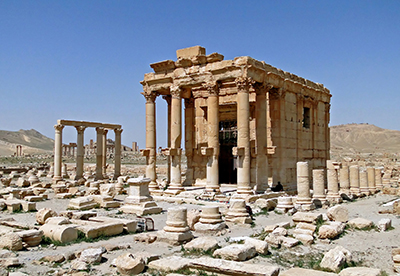Kate Fitz Gibbon is a member of the board of the Committee For Cultural Policy, a nonprofit organization committed to improving arts policy. She is also an attorney advising art collectors and museums, serving on the board of the Elder Law Section of the New Mexico State Bar Association and a member of the Art and Cultural Heritage Law Committee of the American Bar Association. She served on the Cultural Property Advisory Committee to the president 2000–03 and was editor and contributor to Who Owns the Past? Cultural Property, Cultural Policy and the Law, Rutgers University Press, 2005. Things have been frenetic on the cultural policy front these days, with a diverse range of issues demanding her attention.
A recent focus for your organization has been the proposed German law that would allow the government to prevent the export of artworks deemed “cultural treasures.” What effect would this have on collectors and museums?
It would limit the ability of collectors to move their artworks out of Germany, and it would give German museums an edge in buying works for which permission to export was denied. Minister of Culture Monika Grütters was sharply criticized for the provisions requiring export permits for works 50 years old and worth 150,000 euros, so the draft has been amended to 70 years and 300,000 euros.
Antiques dealers and auction houses and collectors of antiquities are still seriously harmed by the law, which would prohibit import of cultural objects if they are classified by UNESCO member states or European Union states as “national treasures possessing artistic, historic or archaeological value” and if the objects were transferred from the foreign state in contravention of its laws. These provisions make foreign legislation the criteria for German government action, and since source country legislation often classifies every single artifact as a national treasure, it amounts to a blanket prohibition on imports into Germany.
We repeatedly see distressing images on the news of ISIS forces smashing monuments that they believe are disrespectful to their brand of Islam. What can be done to protect these treasures?
We need to stop ISIS, obviously. Until that happens, governments and heritage organizations need to take emergency steps to halt antiquities at Syria’s and Iraq’s borders, where interdiction can be both effective and send a clear message to looters. We need to focus on protection for artifacts, on allowing museums to act as safe harbors, and we should not repatriate artworks back to the Assad regime — that’s madness, but it is current State Department policy.
With ever more scrutiny being placed on items that have been sourced from war-ravaged regions, to what extent is a dealer or auction house responsible to prove an item is not recently looted?
The FBI issued a public statement warning people from buying antiquities. But the FBI doesn’t have agents stationed overseas with jurisdiction or any investigative program. So far, there is no evidence of a US or European trade in looted art from Syria and Iraq. Nonetheless, due diligence by the art trade is crucial, and not just because it would be a crime to sell anything that benefited ISIS. It is an ethical responsibility. However, the invented stories about a billion-dollar antiquities market need to stop. US policy must be based upon facts and a credible analysis of the market. The art trade should welcome scrutiny and demand that US trade officials make trade decisions, not archaeologists habitually opposed to trade in art, especially not archaeologists receiving State Department grants.
What is your view of the new rule on the ivory trade? Is it true that some bona fide antique items can get caught up in the much-publicized “ivory crushes”?
I don’t know anything in the law to prevent antiques being crushed. No one has a problem with cutting off imports and trade in new ivory. Elephants need to be protected, absolutely. But halting the trade in antique ivory harms thousands of small businesses and millions of people who own antiques containing ivory, without doing a thing to protect living elephants.
Everyone must obey the law — but the law needs to be clear to all. The Fish and Wildlife Service has yet to provide clear directions on what is proper documentation for meeting the antiques exception under the Endangered Species Act or what sort of discretion the service will apply in determining what items are lawful to sell in interstate and foreign commerce. The comment period for the draft regulation ends September 28, so now is the time to make objections and suggestions.
It seems a big job covering all the cultural issues affecting art and historical treasures around the world. How big is your staff at the Committee for Cultural Policy and how is your work funded?
We’re a small group, but we’ve had a big impact because what we have to say about balanced cultural policy makes sense. We’ve also got tremendous expertise on our board, from former museum directors and curators to a former senior customs agent, to experts on art law and highly respected art dealers. We’re entirely supported by public donations — so please help! Send a donation and sign up for our newsletter at our website, www.committeeforculturalpolicy.org.



